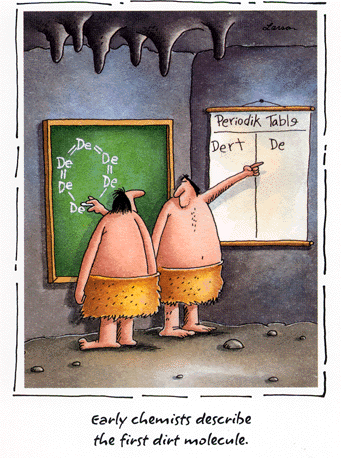Alchemy was and to some extent is the study of nature at the metaphysical level. Early alchemists were concerned with the transmutation of ordinary substances into gold or silver as well as the search for the “elixir of life” a substance that would cure all ailments and diseases. To do this, alchemists believed that they would need to find a universal solvent that would dissolve all substances, including gold. This universal solvent became known as the Philosopher’s Stone. Alchemy can be traced as far back as ancient Egypt and continues to this day on a philosophical or spiritual level. Along the way alchemy gave birth to inorganic chemistry and many experimental methods, apparatus, and element and substance identification procedures came from alchemists turned chemists.
Modern chemistry is the study of all matter at the atomic level. Chemists are interested in the absolute smallest particles of matter up to how those particles interact and what the repercussions of those interactions are for man and nature. Chemistry is the identification of elements and how those elements make up substances and mixtures. From this chemists can determine the chemical formula of substances and by combining different substance in different states of matter the chemist can create many different chemical reactions. Some of these chemical reactions are useful, some are harmful and some are downright fatal (atom bombs being such a chemical reaction). Without modern chemistry many of the conveniences we enjoy today, such as computers, antibiotics, and synthetic clothing wouldn’t be possible.




